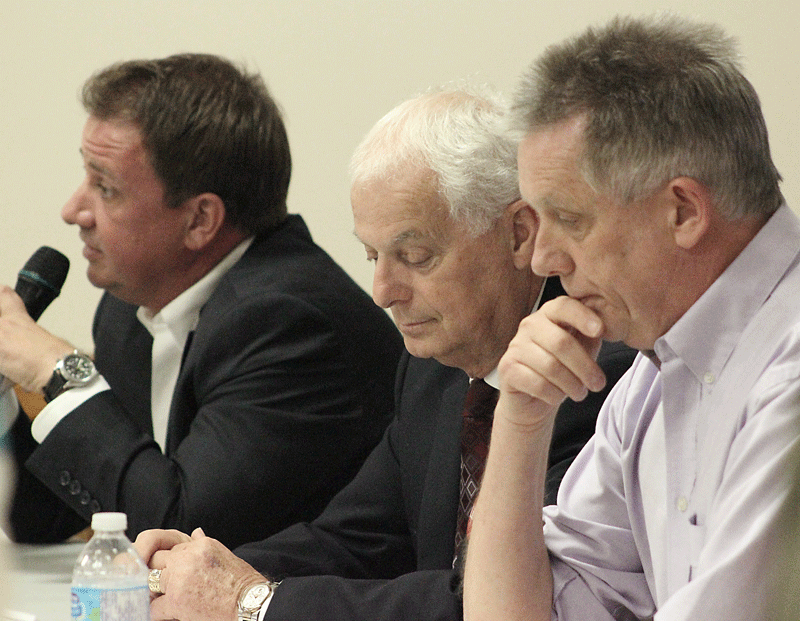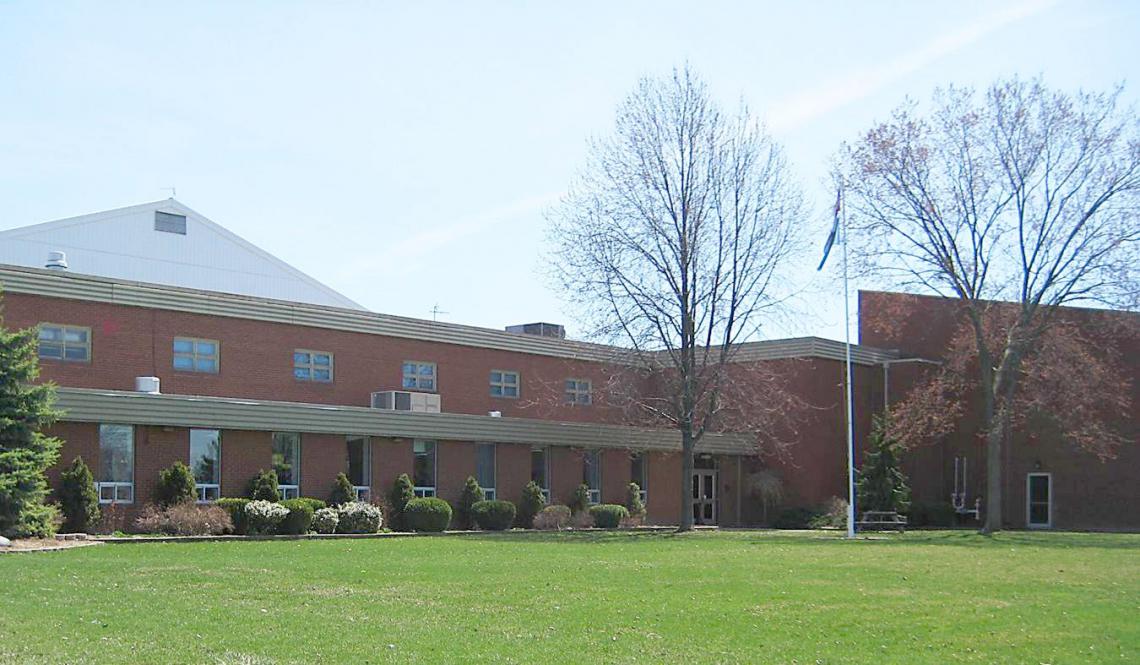Jason McMichael wonders just how good the new TransPacific Trade Deal is for Canadian farmers.
The NDP candidate in Sarnia-Lambton was one of three people involved in a debate hosted by the Sarnia-Lambton Chamber of Commerce and the Lambton Federation of Agriculture in Wyoming Monday where the newly signed deal was a hot topic.
While the election was ongoing, the federal Conservative government reached a deal with 12 countries, including the United States, Taiwan, Japan and Australia. The wording of the deal hasn’t been released yet but sectors of the agriculture industry protected by supply management boards which guarantee Canadian farmers produce food for Canada have had to give up a portion of their market share to the new trading partners. The amount of foreign trade let in depends on the supply-managed sectors for example the dairy industry will have to give up 3.25 per cent of its market share.
The government has already announced it has set aside $4.6 billion to compensate farmers for any loses under the deal.
That’s left the agriculture industry – which holds one out of every eight jobs in Canada – wondering what’s in the deal.
And that was McMichael’s question at the debate Monday. “We know very little about the TPP,” he says. “I’ll ask you a question – if it was good for you, do you think the Conservatives would have negotiated in secret? If it is a good thing wouldn’t they be using it in the election?”
“If this deal was good for farmers, do you think would we have to give them $4 billion of your hard-earned money? Because I don’t.”
NDP Leader Thomas Muclair has already said he would scrap the deal if he thought I wasn’t good for Canada’s agriculture and auto industry – which is also said to be making concessions.
Liberal David McPhail was more cautious about the TPP saying the Liberals have always been in favour of free trade and would look at the deal to see what it contains. But he says without the text of the agreement it is hard to give a position. “Negotiations – good negotiations – take place when you have people talking about the facts,” he says.
Green Party Candidate Peter Smith told the crowd his party “recognizes we are only human and don’t have all the answers” about the deal adding they would “consult with the experts” to see if the new pact is good for Canada.
Conservative Candidate Marilyn Gladu wasn’t at the debate – taking time off the campaign for a medical issue – but sent a statement endorsing her party’s deal. “Canada is, and must remain, a trading nation,” moderator Dave Ferguson read. “Canada will now be the only G7 nation with free trade access to all the US and (the) Americas, Europe and Asia-Pacific continents; that’s over 60 per cent of the world’s economy.”
She added the TPP will create and protect jobs and grow the economy “in every region.
“Every sector of Canada’s agriculture and agri-food industry will benefit from the TPP.”
Trade wasn’t the only topic on the candidate’s minds. They faced questions on everything from how the parties would pay for their election promises to how to increase the rural population and grow the food production sector. Here’s some of what they said.
On increasing the rural population: all three candidates say the federal government has to invest in rural areas. McMichael touted the NDP’s Innovation Tax Credit as a way to keep young people in the area. Smith says the Green Party would create jobs in rural environments by making use of raw products, upgrading them in Canada. McPhail says the Liberals infrastructure plan will not only create jobs to keep people in rural areas, it will provide much needed infrastructure to keep rural communities strong.
On ensuring the rural communities get their fair share of infrastructure funding: McPhail touted the Liberals plan to invest $6.5 billion a year for 10 years saying rural areas should have more access to natural gas and high speed internet. The Greens would spend $6.4 billion on infrastructure and would invest in a better passenger rail system and high speed Internet to serve rural areas. The NDP has an $18 billion infrastructure plan, says McMichael. He says the NDP will consult with the municipalities on how it should be spent.
On how money should be spend in agriculture; all three candidates at the debate decried the Conservatives reduction of agriculture inspectors and said their governments would reinvest in the inspection system. Smith says the Green Party would also make sure incentives were not just for large commercial agriculture ventures but family farms.
On student debt: McPhail touted the Liberals plan to devise better interest rates on student loans and put repayment on hold until students are making at least $25,000 a year. McMichael says the NDP will cut the interest rates on the federal portion of student loans and has $40 million worth of new grants for students. Smith says the Greens would provide free post-secondary education and give low-interest loans for housing expenses in the hops of improving student’s education which will lead to better jobs.
On increasing the amount of domestic food production: All agreed the federal government has to do more to increase local production. McMichael says the feds should invest in research in areas where Canada isn’t strong to be more competitive with other countries. All agreed the government should be working with farmers to increase the amount of food production in Canada.
And on how they would pay for all the promises made: McPhail says the Liberals will increase personal income tax on people making more than $200,000 and run $10 billion deficits for the first three years of it’s mandate. “The only question I’ve had about the deficits we’d run is ‘why is it so low with interest rates so reasonable,” says McPhail. McMichael says there would be no cuts to services with an NDP government – but corporations would start “paying their fair share.” He says tax loopholes would also be closed. Smith says the Green’s would increase corporate taxes two per cent to pay for its plan. He also says government priorities have to be realigned. “We have to stop to think what we really want.”
Canada votes Oct. 19.





